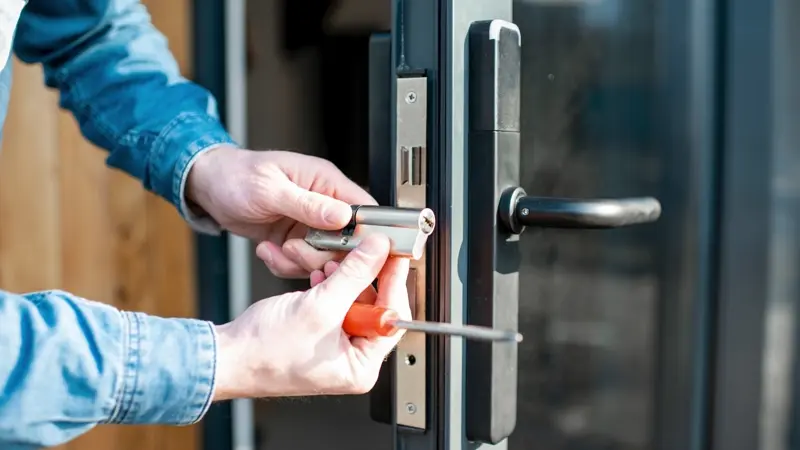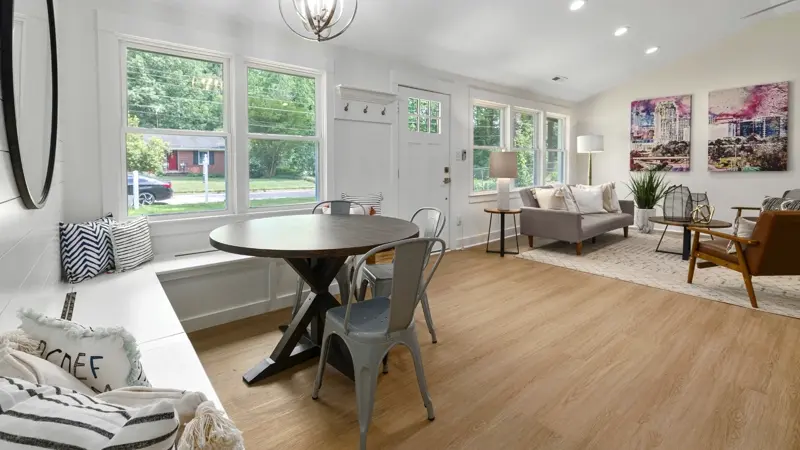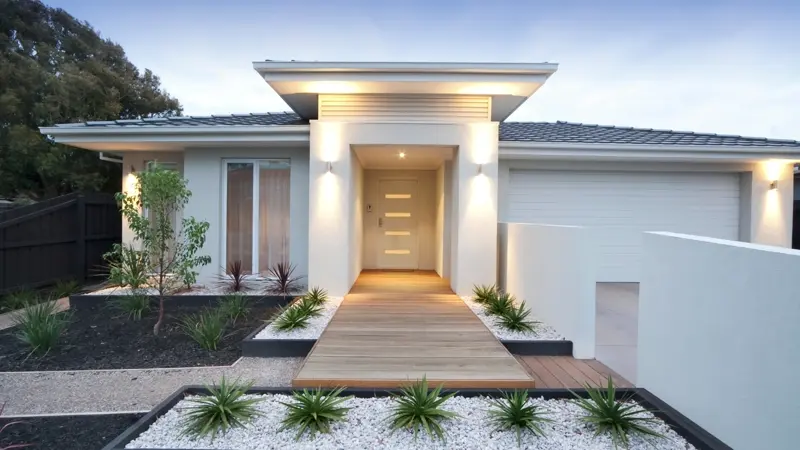Ensuring the safety of your home is a primary concern for homeowners. A crucial part of maintaining this safety is the selection of an appropriate door lock. With a wide variety of door locks on the market, choosing one can seem daunting. However, understanding the differences among them is key to choosing a lock that fulfills your security requirements. We will delve into the various household door lock types to aid you in selecting the ideal one for your residence.
Table of Contents
Choosing the Right Door Lock for Your Home
When selecting door locks for your home, it’s important to evaluate several key considerations. Assess the desired level of security, your personal convenience needs, design preferences, and budget limits. To enhance your home’s protection against unauthorized entry, upgrading your current locks can be a cost-effective alternative to entirely replacing them.
Maintenance plays a crucial role in ensuring that whatever type of lock you install continues to function effectively over time. Although the allure of cutting-edge technology in smart locks and the proven security of deadbolts are appealing, it’s wise to seek advice from professional locksmiths or security specialists. These experts can provide informed recommendations on the most suitable lock types for each access point in your home.
Let’s explore some common door lock types to find which might be the best fit for your needs.
1. Traditional Key Locks: A Time-Honored Standard
The traditional key lock, an enduring symbol of security with its classic metal form, has reliably protected homes and sanctuaries throughout history. This lock relies on a pin-tumbler mechanism where pins of differing lengths interact with a key’s specific cuts to allow only the correct key to operate it. Crafted from materials like brass or steel, the physical key serves as both the functional device and a representation of our desire for security, carried with us as a safeguard.
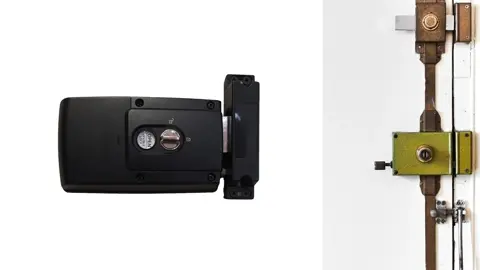
Despite their longstanding use, these locks have drawbacks: misplaced keys can cause lockouts, changing locks can be expensive and troublesome, and the risk of unauthorized key duplication poses a threat. Yet, in the face of digital and smart lock innovations, traditional key locks still stand as a simple, robust buffer at the entrance to our personal spaces.
2. Deadbolts: Enhanced Security
Deadbolts are a powerful ally in home and business security, offering significantly better protection against break-ins than their spring bolt counterparts. The deadbolt’s design is brilliantly straightforward and highly effective. It operates with a solid, moveable bolt that locks and unlocks with a key or turn of a knob, without the vulnerability of a spring mechanism that could be easily bypassed using simple tools like a credit card. This unique characteristic makes the deadbolt an exceptional choice for safeguarding properties.
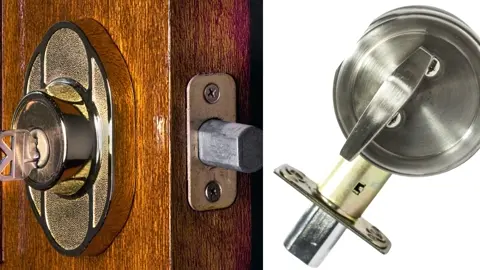
There is also a selection of deadbolt types to meet varying security needs. The single-cylinder option offers easy access; you can unlock it with a key from the outside or by simply turning the knob on the inside. Conversely, the double-cylinder deadbolt requires a key for entry from both inside and outside, which provides an additional layer of security. This design prevents intruders from breaking through nearby windows or glass panels and unlocking the door from the inside.
3. Knob Locks: The Basic Solution
Knob locks are a basic type of security often found in homes, combining the purposes of a handle and a lock in one unit. These locks are convenient for interior doors or as an added security measure. The simple design includes a latch that is operated by turning the knob on the inside and a keyhole on the outside for locking and unlocking. While knob locks are popular due to their convenience, experts consider them less secure compared to other lock types. Their weaknesses lie in their vulnerability to lock picking and the possibility of the knob being forcibly broken off. Thus, for ensuring privacy within the home, knob locks are suitable, but they should not be used as the sole security measure on external doors.
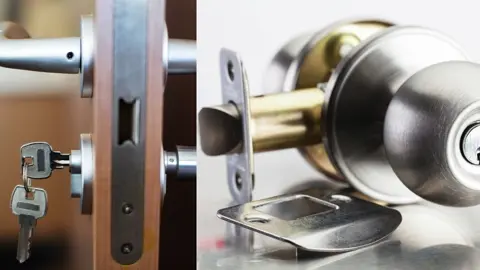
For enhanced security, particularly at entry points, it’s recommended to use them alongside stronger locking mechanisms like deadbolts. Deadbolts are more effective at preventing unauthorized access because they do not depend on a spring mechanism and are more resistant to being forced open. In summary, knob locks can be useful but should not be relied upon alone where higher security is needed.
4. Smart Locks: The Modern Approach
Smart locks represent a major advancement in how we protect our homes, offering a high-tech twist on traditional locks. These devices provide exceptional ease and control for homeowners, allowing you to manage your door’s entry from the comfort of your sofa or even when you’re away. Their ability to connect with smartphones and Internet-connected devices is key, enabling you to unlock doors with user-friendly apps. You can set up custom access codes for family or temporary access for guests without risking your home’s security. The addition of biometric entry, like fingerprint scanning, gives a more personal level of security by allowing only recognized users to open the door.
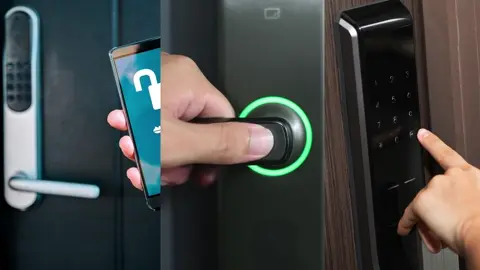
Although smart locks bring plenty of benefits, they also require careful installation and a commitment to digital security. Proper installation ensures the lock works perfectly, and protecting against online threats maintains the reliability of these advanced security tools in our digitally connected homes.
5. Padlocks: Versatile and Portable
Padlocks are highly versatile and portable, setting them apart in the security world. These detachable locks excel in a wide range of uses because they aren’t tied down like permanent locking fixtures. They protect various items from unauthorized access and come in many sizes, from small ones for lockers to large padlocks for industrial purposes. They are built to resist force and tampering, with the more expensive models featuring sturdy materials and complex designs.
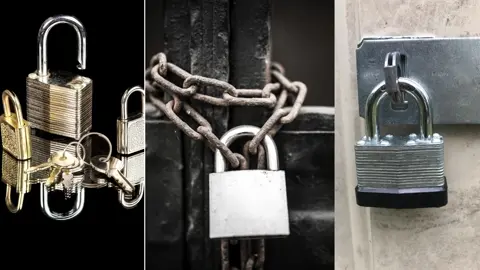
While not suitable for primary security on main entrances that need built-in locks, padlocks are ideal for additional security. They are perfect for garden gates, tool sheds, or storage chests holding valuables, providing a strong removable layer of protection when needed. The adaptability of padlocks means they’re reliable wherever you need a secure, removable barrier.
6. Cam Locks: Specialty Security
Cam locks are recognized for offering a simple and effective way to protect personal privacy and secure items, both at home and in the office. These locks have a cylindrical shape and are commonly used to secure mailboxes, filing cabinets, and various smaller storage units throughout our living spaces. They work by utilizing a cam—a flat or curved metal piece that acts as a latch when rotated with a key or tool—to lock a panel or door shut.
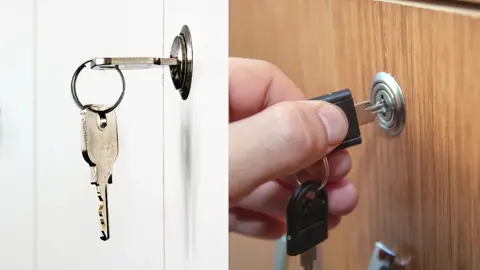
Although not designed to counter professional thieves’ advanced techniques, cam locks are excellent for preventing access from less serious threats like inquisitive family members or colleagues. By using these locks, we silently affirm our expectation of privacy and the security of our personal possessions in spaces where we believe they should be left untouched.
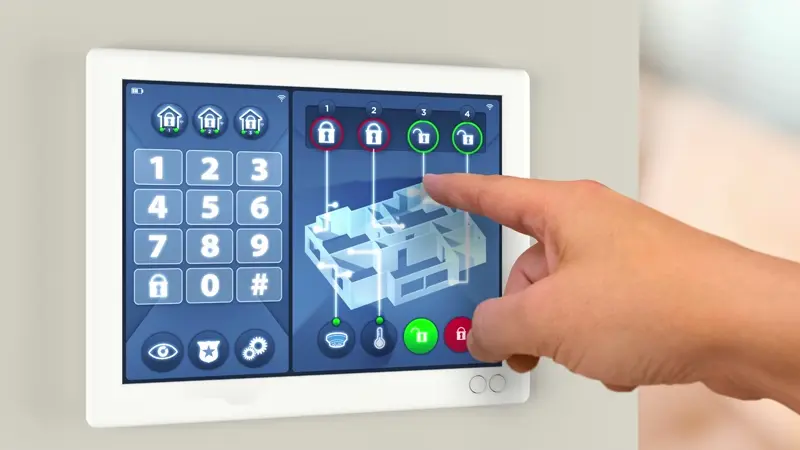
The Bottom Line
Knowing about the various types of door locks for homes allows owners to choose options that enhance security and meet their convenience needs. Whether selecting old-fashioned locks or embracing smart tech features in your home protection strategy, being knowledgeable is essential for effectively preventing unauthorized entry into your home.
